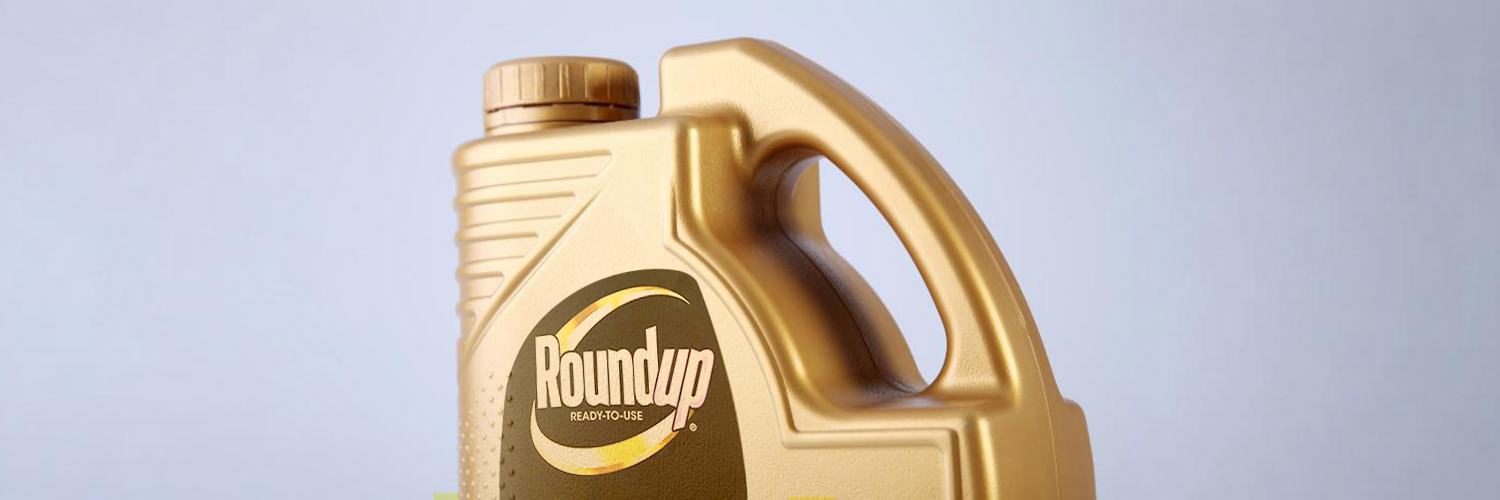Personal Injury News: Pick Of Last Month: March-2025
Seoul Medical to Pay $62M in Medicare Fraud Settlement

Seoul Medical Group Inc., along with its subsidiary Advanced Medical Management Inc., both based in California, have agreed to pay $58.74 million to resolve allegations of violating the False Claims Act.
These allegations involve the submission of inaccurate diagnosis codes related to spinal conditions to inflate payments from the Medicare Advantage program. Additionally, the former president and majority owner of the companies has agreed to a separate settlement of $1.76 million.
Radiology Group Also Pays to Settle Related Allegations
Renaissance Imaging Medical Associates Inc., a California-based radiology group, has also entered into a settlement agreement. The group will pay $2.35 million for allegedly conspiring with Seoul Medical Group in connection with the false spinal diagnoses. This brings the total settlement amount across the involved parties to over $62.8 million.
How Medicare Advantage Payments Work
Medicare Advantage, also known as Medicare Part C, allows Medicare beneficiaries to enroll in private managed care plans (MA Plans) that contract with providers to offer Medicare-covered services. The Centers for Medicare & Medicaid Services (CMS) pays these plans a fixed amount per enrolled beneficiary. This amount is adjusted based on the demographic and health profile of each individual, a process known as risk adjustment. More severe diagnoses lead to higher risk scores and, consequently, increased payments to the MA Plan.
Alleged Fraudulent Diagnoses and Financial Gain
Between 2015 and 2021, Seoul Medical Group allegedly submitted false diagnoses for two serious spinal conditions—spinal enthesopathy and sacroiliitis—for patients who did not have these conditions. These misrepresented diagnoses led to higher risk scores and larger payments from CMS to the MA Plans. The plans then shared a portion of the increased funds with Seoul Medical Group.
When questioned by an MA Plan about the use of the spinal enthesopathy diagnosis, Seoul Medical Group is said to have involved Renaissance Imaging Medical Associates to produce radiology reports that falsely supported the diagnosis. These reports helped to justify the false claims and secure higher payments from the federal government.
Enforcement of Healthcare Integrity
Officials emphasized the importance of protecting the Medicare Advantage program and holding providers accountable. Acting Assistant Attorney General for the Justice Department’s Civil Division stated that the government expects honest and accurate reporting from healthcare providers. “Today’s result sends a clear message to the Medicare Advantage community that the United States will zealously pursue appropriate action against those who knowingly submit false claims for taxpayer funds,” the official said.
The Acting U.S. Attorney for the Central District of California echoed this sentiment, asserting the office's commitment to pursuing those who defraud government healthcare programs. “As this settlement makes clear, we will diligently pursue those who defraud government programs,” he stated.
Consequences for Misusing Public Healthcare Funds
A representative from the Department of Health and Human Services Office of Inspector General (HHS-OIG) emphasized the impact of such fraudulent activity. “Providers who game the Medicare program to increase profit undermine the foundation of care and diminish patient trust in the nation’s public health care system,” the official said. He also reaffirmed the department’s dedication to investigating and addressing false claims in collaboration with law enforcement partners.
Whistleblower Filed Suit Under the False Claims Act
The civil settlement stems from a lawsuit filed under the qui tam provisions of the False Claims Act. The whistleblower in this case is a former Vice President and Chief Financial Officer of Advanced Medical Management. The False Claims Act allows private individuals to sue on behalf of the federal government and potentially receive a portion of the settlement proceeds. The whistleblower’s share of this particular recovery has yet to be determined.
Government Agencies Cooperated in the Investigation
The successful resolution of this case was the result of a coordinated effort between several government agencies. The Justice Department’s Civil Division, the Commercial Litigation Branch's Fraud Section, the U.S. Attorney’s Office for the Central District of California, and the HHS-OIG all contributed to the investigation.
Upholding the Integrity of Medicare
This case highlights the federal government’s ongoing focus on combating healthcare fraud, especially within Medicare Advantage. The False Claims Act remains a key legal tool in the government’s efforts to preserve the integrity of public healthcare programs and protect taxpayer dollars.
AG Secures $49.1M in Drug Price-Fix Settlement

Consumers who overpaid for certain generic drugs may now be eligible for compensation from a $49.1 million settlement involving two pharmaceutical companies.
The announcement was made by the Ohio Attorney General as part of a broader effort to combat price-fixing in the generic drug market.
Manufacturers Accused of Market Manipulation
Apotex, based in Toronto, and Heritage Pharmaceuticals, located in Eatontown, New Jersey, were accused of participating in a coordinated scheme to inflate prices, limit market competition, and manipulate the generic drug market for profit. Heritage will contribute $10 million, while Apotex will pay $39.1 million under the settlement agreement filed in December 2016 in the U.S. District Court for the District of Connecticut.
Protecting Consumers and Restoring Competition
Calling the scheme a “conspiracy to cheat the system,” the Ohio Attorney General emphasized the state's commitment to restoring fair competition and ensuring accountability. He stated, “We won’t tolerate collusion that inflates drug prices and harms Ohioans who rely on affordable medication.”
Eligibility for Compensation
Consumers who purchased specific generic prescription medications between May 2009 and December 2019 may qualify for compensation as part of the settlement. Additional details regarding eligible drugs and the claims process are expected to be provided in the near future.
Multi-State Legal Action Targets Industry-Wide Collusion
Ohio joined a coalition of nearly every U.S. state and territory in pursuing legal action against 30 corporate defendants and 25 individual executives through three major antitrust complaints. The first complaint, filed in 2016, named Heritage, Apotex, and 16 other corporate defendants for their involvement in price manipulation involving 15 generic drugs. Two former executives from Heritage have settled and are cooperating with authorities.
Further Complaints Expand Scope
The second complaint, filed in 2019, named Teva Pharmaceuticals, Apotex, and several other leading generic manufacturers, alleging price-fixing and market allocation. A third complaint, filed in 2020, focused on price manipulation related to 80 topical generic drugs, identifying 26 corporate defendants and 10 individuals. Six executives have settled and are providing assistance in ongoing litigation.
Extensive Evidence Uncovered
The investigations rely on testimony from cooperating witnesses and a vast database of over 20 million documents and phone records. Evidence includes a two-volume notebook kept by a witness, along with coded communications such as “fair share” and “playing nice in the sandbox,” which were used to disguise illegal agreements.
Fighting Back Against Corporate Greed
This settlement represents a significant step in the nationwide fight against corporate collusion in the pharmaceutical industry. It underscores Ohio’s and its partners’ dedication to protecting consumers from unfair and unlawful business practices.
Fairbanks Four Final Plaintiff Settles for $11.5 Million

The last remaining plaintiff from the group known as the Fairbanks Four has settled his wrongful conviction lawsuit with the City of Fairbanks.
The settlement, announced more than seven years after the original suit was filed, brings the total payouts related to the case to over $16 million.
Structured Payment Plan Finalized
According to the Fairbanks City Attorney, the city will pay the $11.5 million in structured installment payments. While the settlement terms are still being finalized, the agreement marks a significant development in a case that has been ongoing since 2017. The settlement was reached through mediation, although the city has not disclosed the mediator’s identity. The city attorney described the negotiations as “intense” and credited the experienced mediator for helping both parties arrive at the final amount.
Avoiding a Trial
With the settlement now in place, the lawsuit will not proceed to a jury trial, which had been scheduled for December. The plaintiff’s claims against the City of Fairbanks and four of its police officers will be dismissed as part of the agreement.
Background: The Fairbanks Four Case
The Fairbanks Four—four Indigenous men—were convicted of the 1997 murder of a teenager. They maintained their innocence throughout and were released from prison in late 2015 after another man came forward and confessed to the crime. His confession was backed by multiple witnesses, one of whom alleged that police had coerced him into giving false testimony against the four men.
The group filed a civil rights lawsuit in late 2017, claiming Fairbanks police had fabricated evidence leading to their wrongful convictions. The former officers named in the lawsuit denied wrongdoing.
Earlier Settlements for Other Members
In 2023, the other three members of the Fairbanks Four settled with the city’s insurer. Each received approximately $1.6 million and agreed to dismiss their claims. Like the latest agreement, those settlements did not require the City of Fairbanks to admit liability or issue an apology.
Monsanto Ordered to Pay $2.1B in Roundup Cancer Case

A Georgia jury has ordered Bayer, the parent company of Monsanto, to pay nearly $2.1 billion in damages to a man who claimed that exposure to the company's Roundup weed killer caused his cancer.
The verdict, delivered in a Georgia courtroom, includes $65 million in compensatory damages and $2 billion in punitive damages—making it one of the largest awards in a Roundup-related lawsuit to date.
Plaintiff Claims Roundup Caused His Cancer
The plaintiff filed his lawsuit in 2021, stating that regular use of Roundup led to his diagnosis of non-Hodgkin’s lymphoma. According to his legal team, the verdict will provide him the financial support necessary for ongoing medical treatment. His attorneys called the decision a victory not only for their client but for public awareness regarding the product’s alleged dangers.
Bayer Plans to Appeal Verdict
Bayer, the German pharmaceutical and chemical giant that acquired Monsanto in 2018, has stated it will appeal the verdict. In its statement, the company claimed the decision contradicts “the overwhelming weight of scientific evidence and the consensus of global regulatory agencies.” Bayer continues to assert that Roundup and its active ingredient, glyphosate, are safe when used according to directions.
Roundup’s Controversial Legacy
Roundup is one of the most widely used herbicides in the world and is often paired with genetically modified crops that are resistant to the chemical. While the U.S. Environmental Protection Agency has stated glyphosate is unlikely to be carcinogenic when used properly, other studies have linked it to certain cancers, including non-Hodgkin’s lymphoma. Monsanto has faced more than 177,000 lawsuits over the product and has allocated $16 billion for settlements.
Ongoing Legal and Legislative Battles
Despite numerous legal challenges, Monsanto maintains its position that Roundup is safe and continues to fight cases in court. The company has claimed victory in 17 of its last 25 trials and said overall jury awards have been reduced by about 90% in finalized cases. Meanwhile, Bayer has launched efforts in several states to pass laws shielding pesticide manufacturers from liability if their product labeling complies with EPA standards. Critics argue such legislation would prevent consumers from holding companies accountable for potential health risks.
Live Nation Settles Shareholder Suit for $20 Million

Entertainment powerhouse Live Nation has agreed to pay $20 million to settle a shareholder class action lawsuit that accused the company of misleading investors about its compliance with antitrust laws and competition within the industry.
The proposed settlement was filed in federal court in Riverside, California, and awaits a judge’s approval.
Allegations of Misleading Disclosures
The lawsuit, originally filed in August 2023, claimed that Live Nation violated U.S. securities laws by failing to disclose key regulatory risks and its cooperation with ongoing government investigations. Shareholders argued that the company’s statements misrepresented the true source of its financial success, which allegedly stemmed from anti-competitive practices by its subsidiary Ticketmaster, including retaliation against businesses that declined to partner with it.
Settlement Details and Denial of Wrongdoing
Live Nation has denied any wrongdoing in agreeing to the settlement, stating it chose to settle purely to avoid the uncertainties and costs of continued litigation. The company emphasized that the agreement should not be interpreted as an admission of liability.
Attorneys Praise Terms of Agreement
Attorneys representing the shareholders described the proposed deal as “fair, reasonable, and adequate,” noting that it was reached after extensive negotiations and contested litigation. The $20 million represents approximately 3% of the estimated $743 million in potential damages, which lawyers said is in line with similar class action settlements.
Legal Fees and Next Steps
The legal team intends to request up to 33.3% of the settlement amount, or about $6.7 million, in attorney’s fees. A preliminary hearing for settlement approval is scheduled for April 24.
Ongoing Legal Battles
Live Nation continues to face additional legal challenges, including a consumer antitrust lawsuit in Los Angeles and separate claims from the U.S. Justice Department in Manhattan. The company denies the allegations in those cases as well.
Carson Tahoe Health Settles PPP Loan Allegations for $8.8M

Carson Tahoe Health System, along with its affiliates Carson Tahoe Physician Clinics and Carson Tahoe Continuing Care Hospital, has agreed to pay $8,876,475.45 to settle allegations regarding ineligibility for Paycheck Protection Program (PPP) loans.
The settlement was announced by the Acting U.S. Attorney, reflecting a significant recovery of taxpayer dollars.
Allegations of PPP Loan Ineligibility
The Paycheck Protection Program was created by Congress in March 2020 under the Coronavirus Aid, Relief, and Economic Security (CARES) Act to provide financial relief to small businesses impacted by the COVID-19 pandemic. To qualify for a loan, businesses had to meet specific eligibility criteria, including limits on business size under the Small Business Administration's (SBA) affiliation rules. The U.S. government contends that Carson Tahoe Health System and its affiliated entities exceeded the size restrictions and were therefore ineligible to receive the PPP loans they obtained.
Details of the Loans and Forgiveness
In May 2020, Carson Tahoe Health System and its affiliates received a total of $5,077,011 in PPP loans. These loans were later forgiven by the SBA after the companies submitted their forgiveness applications. Additionally, in February 2021, Carson Tahoe Physician Clinics applied for a second PPP loan of $2 million, which was also forgiven in September 2021. The four loans collectively led to $7,267,009 in disbursements, including the forgiven loan principal, interest, and lender fees.
Government's Efforts to Enforce PPP Compliance
“This settlement returns millions of taxpayer dollars to the government and demonstrates our ongoing commitment to enforcing the Paycheck Protection Program’s rules,” said the Acting U.S. Attorney. The settlement is seen as a positive outcome of federal agencies’ efforts, including the SBA and the U.S. Attorney’s Office, to pursue recovery from businesses that improperly obtained government relief funds.
Whistleblower Lawsuit and Settlement Terms
The settlement originates from a lawsuit filed by a whistleblower under the qui tam provisions of the False Claims Act. These provisions allow private individuals, known as relators, to sue on behalf of the government and receive a portion of the recovery. The whistleblower in this case will receive a share of the settlement.
No Determination of Liability
It is important to note that the claims resolved by this settlement are merely allegations, and no formal determination of liability has been made. The matter was handled by the Assistant U.S. Attorney for the Eastern District of California.
Starbucks Ordered to Pay $50M in Hot Tea Burn Case

A California jury has awarded $50 million in damages to a delivery driver who was severely burned when a Starbucks drink spilled in his lap at a Los Angeles County drive-through, according to court documents.
Incident Resulted in Permanent Injury
The incident occurred on February 8, 2020, when the plaintiff received a venti-sized hot tea. Moments after taking the beverage, it tipped over, spilling scalding liquid onto his lap. The man required extensive medical treatment, including skin grafts on his genitals, and continues to experience permanent and life-altering disfigurement, his attorneys said.
Allegations of Negligence Against Starbucks
The lawsuit accused Starbucks of negligence, asserting that the employee failed to properly secure the hot drink in a takeout tray, which directly led to the injury. The jury agreed with the plaintiff’s claim and returned a verdict in his favor. One of his attorneys described the outcome as a significant step toward holding Starbucks accountable for what they termed a disregard for customer safety.
Starbucks Plans to Appeal Verdict
In a statement, Starbucks expressed sympathy for the plaintiff but disagreed with the jury’s decision. The company stated the damages were excessive and announced its intention to appeal. Starbucks reiterated its commitment to upholding high safety standards when serving hot beverages.
Previous Burn Lawsuits Against Restaurants
This case recalls similar lawsuits involving hot drink burns. Notably, in the 1990s, a New Mexico jury awarded nearly $3 million to a woman injured by a McDonald's coffee spill, though the amount was later reduced. In contrast, other juries, such as in a separate McDonald’s case in Iowa, have sided with the defense.
Bestway Hit With $25M Verdict in Toddler Drowning Case

The parents of a 2-year-old girl who tragically drowned in an above-ground pool nearly six years ago have been awarded $25 million in a wrongful death lawsuit against the pool's manufacturer and retailer, court records reveal.
The verdict was delivered by the Eastern District of Missouri and holds Bestway USA and Rural King accountable for their roles in the child's death.
Tragic Incident and Faulty Pool Design
The incident occurred on August 3, 2019, at the toddler’s grandparents’ home in Warren County, Missouri. The girl managed to gain access to a Bestway above-ground pool despite safety precautions taken by the family, including placing the ladder 11 feet away. However, a nylon strap encircling the pool, positioned just over a foot above the ground, served as an unintended step. Court records indicated the girl used this strap to climb into the pool, as confirmed by muddy footprints found above it.
Design Flaws and Safety Concerns
The lawsuit criticized Bestway’s pool design, stating the nylon strap created a ledge low enough for a small child to exploit. Attorneys argued that eliminating this strap or redesigning the pool would have only cost the manufacturer a small amount per unit. The complaint accused Bestway of prioritizing profit over safety, stating their conduct demonstrated a “conscious disregard for the safety of others,” and likened it to intentional wrongdoing due to the foreseeable danger it posed.
Retailer Responsibility and Verdict Impact
Rural King, the retailer that sold and promoted the pool, was also named in the suit for advertising the product despite allegedly being aware of its safety defects. The jury found both companies liable for the toddler’s death.
Attorneys for the family stated that while no amount of money could replace the loss of their child, the verdict brought a measure of justice. They expressed hope that this decision would encourage safer product designs and help prevent similar tragedies in the future.

